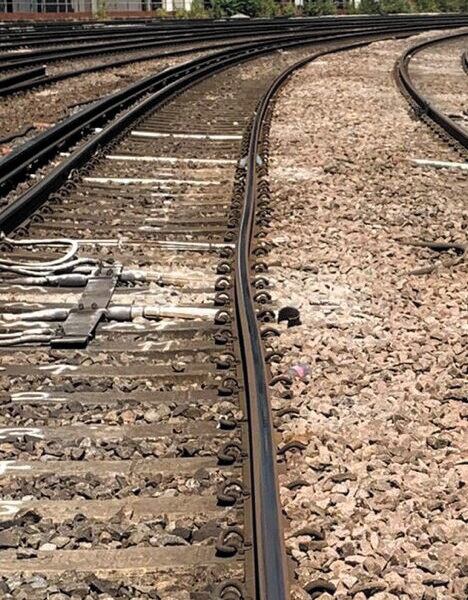Research indicates that without a decrease in greenhouse gas emissions, the number of days trains face operational issues because of increas...

Research indicates that without a decrease in greenhouse gas emissions, the number of days trains face operational issues because of increasing temperatures will increase significantly.
As stated in the study titled "Impact of Climate Change on Railway Operations: Spatial Risk Assessment Based on Rail Temperature and Operation Frequency under SSP Scenarios," featured in the most recent edition of the *Korean Journal of Climate Change*, there will be a substantial rise in days with irregular and halted train services under the SSP5-8.5 scenario.
The SSP5-8.5 pathway assumes inadequate efforts to address climate change, resulting in ongoing increases in greenhouse gas emissions. In this scenario, global levels of carbon dioxide, which are now approximately 420 ppm, are expected to rise to 1,089 ppm by the year 2100.
Increased temperatures disrupt train services as tracks bend due to intense heat. The government listed "rail deformation caused by heatwaves" in its "Third National Climate Change Adaptation Plan," classifying it as a "new kind of risk arising from climate change."
The research group categorized days with rail temperatures above 55 degrees as "abnormal operation days" and those surpassing 64 degrees as "suspended operation days," according to operational standards: normal operations under 55 degrees, restricted-speed operations between 55 and 64 degrees, and shutdowns when exceeding 64 degrees. Rail temperature was calculated as equivalent to air temperature if the air temperature was below 20 degrees, and as twice the air temperature minus 20 degrees when it was higher than 20 degrees.
The study examined 47 routes, such as the Gyeongbu High-Speed Line, Suseo-Pyeongtaek High-Speed Line, and Honam High-Speed Line.
Under the SSP5-8.5 scenario, days of irregular operation are expected to rise significantly from 2050, with many years surpassing 50 days per year in the second half of the century (2080–2100), reaching a high of 87 days in 2090. Days of suspended operation will steadily increase from 2060, with some years seeing over 20 days.
Between 2021 and 2100, the Gyeongbu Line had the highest annual average number of abnormal operation days per route (28.84 days), followed by the Gyeongbu High-Speed Line (28.83 days), Daegu Line (27.25 days), Jungang Line (24.54 days), and Jeolla Line (23.64 days). The Gyeongbu Line also recorded the highest annual average suspended operation days (2.85 days), followed by the Gyeongbu High-Speed Line (2.79 days), Gyeongjeon Line (1.48 days), Gyeongbuk Line (1.41 days), and Gwangju Line (1.08 days).
The effects of irregular and suspended operations differed across regions. The Sin-gil–Yeongdeungpo segment of the Gyeongbu Line recorded the highest annual average of 9,733.05 affected train services, followed by Daebang–Sin-gil (9,713.70), Yeongdeungpo–Shindorim (9,675.00), Noryangjin–Daebang (9,526.65), Shindorim–Guro (9,268.65), and Yongsan–Noryangjin (8,939.70).
The research group stated, "The capital region might turn into a hotspot for railway operational risks because of rising temperatures. As the majority of trains linking the capital region with other areas traverse through it, limitations in this region would greatly affect the whole railway network."
The suggested approach was to address climate change through emission reductions. In the low-emission SSP1-2.6 scenario, days of irregular operations varied between 0 and 31 by 2100 without a distinct increasing pattern, while days of suspended operations stayed very low at 0–2 days. The SSP1-2.6 scenario envisions sustainable growth with minimal greenhouse gas emissions, maintaining global carbon dioxide levels at 432 ppm by 2100—comparable to present-day values. Within this scenario, most routes experienced less than 5 abnormal operation days per year, with the highest being 7.94 days (Gyeongbu Line).
The research was carried out under the "Environmental Technology Development Project for Adapting to the New Climate System" by the Korea Environmental Industry & Technology Institute and may provide essential information for future railway policy formulation.



